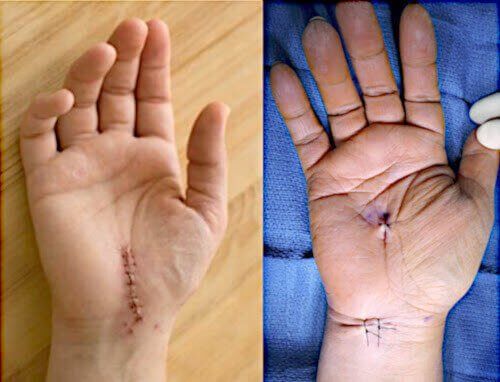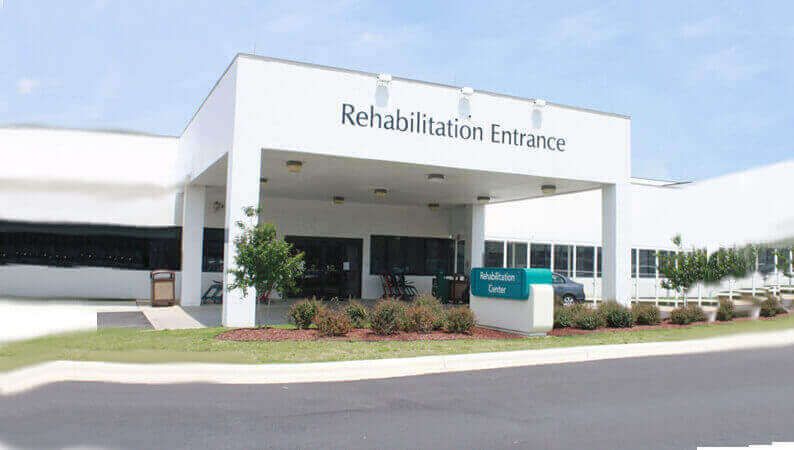What are Carpal Tunnel Surgery "Pros & Cons"?
If you have carpal tunnel syndrome, it's time to get rid of the numbness or pain for good. Perhaps it's time to consider surgery. That means you need to weigh all of the
carpal tunnel surgery pros & cons
with your family and doctor.
Reading this is a great start – begin making a list.
Hand surgery is a big decision that will undoubtedly affect your life, whatever the outcome. And there are a lot of pros & cons to consider. I've listed the main ones below. But you should know that everybody is different. Therefore, some of these pros & cons might be more or less applicable to you.
Why there are carpal tunnel surgery pros & cons
If carpal tunnel surgery had the advantages of being cheap, completely safe, painless, and worked 100% of the time then there would be no thinking about it. You'd just go and have the surgery without question. But unfortunately carpal tunnel surgery has none of these advantages.
Below I’ve listed the top pros and cons for having this operation. Keep in mind that the
American Academy of Orthopedic Surgeons (who regulate this surgery) advise ALL surgeons to try every non-surgical option
first . Why? Because non-surgical remedies are almost always successful in relieving
carpal tunnel symptoms . If your doctor doesn’t follow that protocol and insists on rushing into surgery, then find another
carpal tunnel doctor .
Pros & Cons
Carpal tunnel release surgery is performed using either the “open” or “endoscopic” technique. There are advantages and disadvantages to each. I have reviewed the pros and cons of
endoscopic surgery
before. So for this discussion, I’m grouping
both
surgical techniques together.
Pros
50% Success Rate
The success rate of carpal tunnel surgery is defined by patient satisfaction. About
50% of patients
are satisfied with their outcome 2 years later. Of course, this isn’t a resounding “pro” for surgery. However, in the most severe cases of carpal tunnel syndrome, it’s often the last resort.
Lower cost if things go well
If you have reasonable health insurance, at least 80% of this surgery will be covered. Also, about 70% of your rehabilitation expenses will be covered. However, if complications occur, they may or may not be covered, or covered to the same extent.
Cons
50% Success rate
Once again, we judge surgery's success rate based upon patient satisfaction at 2 years. So if 50% were satisfied with their outcome (as stated above), it also means another 50% of patients were
not
satisfied with their outcome. In fact, about
12% of patients
who failed to see good results undergo a second (called "revision") carpal tunnel surgery. Unfortunately, their results are
less successful
than the first try.
Costs can skyrocket
The
cost of this surgery
varies greatly. But without insurance, it ranges between $5,000 and $8,000. Hand rehabilitation can cost from $12,000 to $24,000.
Risks and dangers
The most common risk of carpal tunnel surgery is reaction to the anesthesia. But that can happen with any surgery. So it's no greater risk in this case.
However, there is a risk of nerve or blood vessel injury. Also, the surgery can result in internal scarring and adhesions. That means having poor hand mobility. In addition, infection is always a possibility. It can happen at the site of the surgery or systemically (throughout your circulation). Finally, prolonged pain is one of the most common complications of this operation.
Chances of failure
Four possible outcomes can result from having carpal tunnel surgery. These are:
- Total success that lasts forever.
- Initial success but symptoms return within a few weeks.
- Symptoms never go away.
- Symptoms are worse than before surgery.
Rehabilitation and recovery
Everyone who has this operation must have hand therapy and rehabilitation during their
recovery from carpal tunnel surgery. Therefore, it’s important to put rehab and recovery on your carpal tunnel surgery pros & cons comparison chart.
Assuming the surgery goes well, you need 2-12 months to restore you hand’s function. However, if all does not go well, you may not regain full hand function. Also, your recovery period (and expenses) will be greater.
Lost job time
Approximately
10% of patients who had carpal tunnel surgery are able to return to their former occupation. The remainder must change jobs or job functions. Unfortunately, most people who consider surgery overlook this important statistic.
In general, you can return to work as soon as 2 weeks or as long as 12 months after surgery. Of course, this time frame depends on several factors. The most important are:
- Whether you had open or endoscopic surgery.
- If surgery was on your dominant hand.
- What kind of work you do with your hands.
- Whether complications (such as infection) arise.
Summary
There are many carpal tunnel surgery pros & cons to consider before you have this operation. Success rate, risks & dangers, cost, and rehabilitation time are just some topics to discuss with your doctor.





